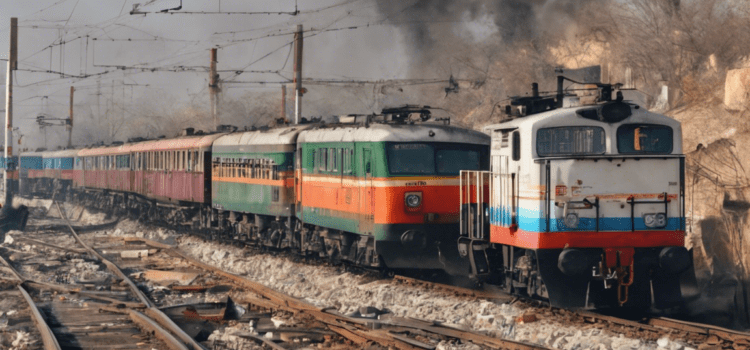Train travel is an integral mode of transportation in many countries, with railways serving as the backbone of the transportation system. As such, it is important for passengers to be familiar with various terms and acronyms related to railway reservations to ensure a smooth and hassle-free journey. One such term that often comes up in the context of railway reservations is CNF. In this comprehensive guide, we will delve into the meaning of CNF, its significance in railway reservations, and how it impacts passengers.
What is CNF in Railway Reservations?
CNF is an acronym that stands for “Confirmed” in the context of railway reservations. When a passenger books a ticket on a train, the ticket can fall under different statuses such as RAC (Reservation Against Cancellation), WL (Waitlist), or CNF (Confirmed). A CNF status indicates that the passenger has a confirmed seat or berth on the train for the specified journey.
Significance of CNF Status
Having a CNF status on your ticket is crucial as it guarantees you a seat or berth on the train. This means that you don’t have to worry about your ticket getting canceled or not having a place to sit during the journey. CNF status provides passengers with the assurance that they can board the train without any last-minute uncertainties.
How is CNF Allotted?
When passengers book their tickets, they are assigned a status based on the availability of seats or berths on the train. If enough seats are available at the time of booking, the status is immediately updated to CNF. However, if the seats are not available, the ticket may be placed on a WL or RAC status. As other passengers cancel their tickets or additional coaches are attached to the train, WL tickets move to RAC, and RAC tickets eventually get CNF status.
Passenger Preferences and CNF
Passengers often prefer having a CNF status on their tickets to avoid the uncertainty of WL or RAC statuses. With a CNF status, passengers can plan their journey confidently, knowing that they have a confirmed seat. During peak travel seasons or on popular routes, getting a CNF ticket can be challenging, leading many passengers to book their tickets well in advance to secure a confirmed status.
Ticket Confirmation Process
The process of ticket confirmation in Indian Railways is dynamic and continuously evolving. With the introduction of technologies like the online booking system and the use of predictive algorithms, the ticket confirmation process has become more efficient. Passengers can track the status of their tickets through the official website or mobile apps, allowing them to stay informed about any changes in their reservation status.
Strategies for Securing CNF Tickets
Given the high demand for train travel, especially during peak seasons, securing a CNF ticket can be competitive. Here are some strategies that passengers can employ to increase their chances of getting a confirmed ticket:
1. Book Early: Booking tickets well in advance, especially for popular routes or festive seasons, can improve your chances of getting a CNF status.
2. Opt for Flexible Travel Dates: If your travel dates are flexible, consider choosing weekdays or non-peak travel times to increase the likelihood of getting a CNF ticket.
3. Use Alternative Quotas: Explore different ticket quotas such as Tatkal or Premium Tatkal quotas that may have better chances of getting a CNF ticket at a higher price.
4. Monitor Ticket Status: Regularly check the status of your ticket and be prepared to make alternative travel arrangements if needed.
5. Travel in Groups: Booking tickets for a group of passengers together may increase the chances of getting CNF tickets as seats may be available together.
CNF Vs. RAC Vs. WL
It’s essential to understand the differences between CNF, RAC, and WL statuses when booking train tickets:
- CNF (Confirmed): Guaranteed seat/berth on the train for the specified journey.
- RAC (Reservation Against Cancellation): Passengers with RAC status are allocated half a berth and can board the train. If a confirmed passenger cancels their ticket, RAC passengers may get a full berth.
- WL (Waitlist): Passengers with WL status do not have a confirmed seat/berth on the train. As other passengers cancel their tickets, WL tickets move up the list to RAC and eventually CNF status.
Frequently Asked Questions (FAQs) about CNF in Railway Reservations:
1. Is CNF status guaranteed on all trains?
- CNF status is subject to seat availability on a specific train. Popular trains/routes may have higher demand, making it more challenging to get a CNF ticket.
2. Can I get a refund if my CNF ticket is canceled?
- Yes, if your CNF ticket is canceled before the chart preparation, you are eligible for a refund as per the cancellation rules.
3. What if my CNF ticket is downgraded to RAC or WL?
- In rare cases where there are last-minute changes, CNF tickets may be downgraded. Passengers will be accommodated per the downgrade rules of the railways.
4. How can I check the status of my CNF ticket?
- Passengers can check the status of their tickets through the official Indian Railways website, mobile apps, or by sending an SMS with the PNR number.
5. Is it possible to upgrade from WL to CNF status?
- Yes, WL tickets can be upgraded to CNF status as other passengers cancel their tickets, moving WL tickets up the list.
Understanding the CNF status in railway reservations is essential for all train passengers to ensure a comfortable and stress-free journey. By being informed about ticket statuses, confirmation processes, and proactive booking strategies, passengers can increase their chances of securing a CNF ticket and enjoy a smooth travel experience.
